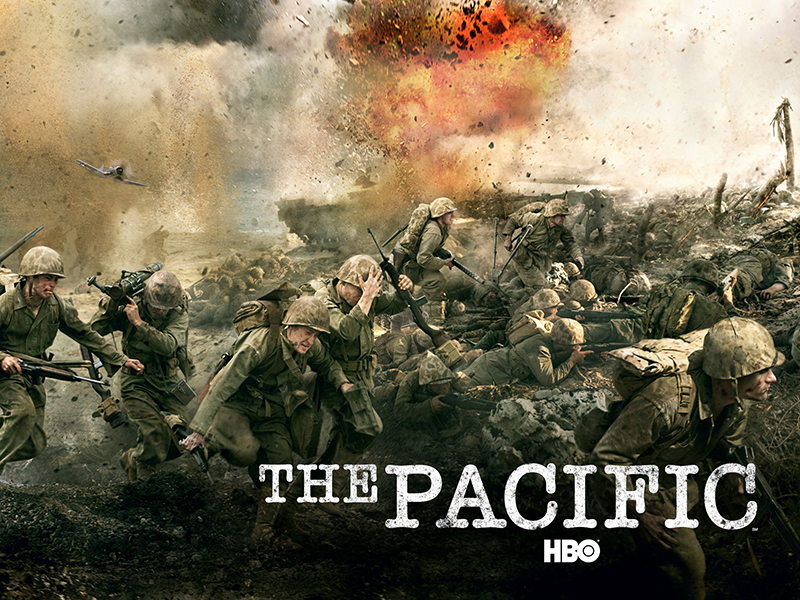The Pacific
- 7 Dec 2021
- This mini-series is less regarded than its spiritual predecessor, Band of Brothers. Its story is less cohesive, but its unflinching depiction of a long and bitter war sets it apart.

About a month ago, I watched The Pacific from start to finish. I saw the first couple of episodes years ago, when I had some free-preview, but I soon lost interest. I got recent access to the HBO library, so I decided to give another chance to this mini-series. It wasn’t at the top of my viewing list. I watched Chernobyl, Season 3 of True Detective, and a third of Silicon Valley beforehand.
The Pacific invites comparison to Band of Brothers. It, too, is the brainchild of producers Steven Spielberg and Tom Hanks. The latter is among the most popular war-stories in motion-picture history. This mini-series is not as acclaimed for various reasons. It doesn’t have as many recognizable actors, and its story is disjointed. It focuses on the Pacific Theater, of course, which is less familiar to general audiences.
Both shows have sappy opening themes and trope-y character interactions. Both follow predominantly-white units, which is accurate because of the US military’s history of segregation. The Pacific separates itself from its more popular cousin, though. It doesn’t pull any punches when depicting battles and their aftermath. The bitterness of the campaign, in the show and in real-life, is extra intense. There are historic reasons that explain it.
First, the Pacific war is longer. The infantry fighting in this show starts in 1942, compared to 1944 in Band of Brothers. Second, the main belligerents have more cause to hate and fear each other. One nation had attacked the homeland of the other nation, inciting the latter to join the war. These nations have very dissimilar cultures as well. Their combatants are much less likely to share common ground, compared to those in Europe.
I’m certain that the remote locales and restricted communication also facilitate the brutality. I commend the creators’ decision to show it. Whereas Band of Brothers premiered two days before the September 11 attacks, The Pacific premiered in early 2010. The Global War on Terror was well underway during the show’s development. Social media was established by then, too. General audiences already had unprecedented access to unfiltered experiences about real war.
This climate surely influenced the general direction of The Pacific. HBO’s Generation Kill, which aired two years earlier, was also a probable influence. In any case, a tamer depiction of this war would’ve been toothless at a time when people could watch raw footage of modern war on the web. The show is memorable, if not enjoyable, for showing combatants on both sides being in pitiful states.
Band of Brothers is still more rewatch-able. I expected that superiority to stay true. I hadn’t expected The Pacific to highlight the toll of this campaign on the men fighting it. The show depicts a variety of them at their best and their worst. Some characters experience both extremes, and this otherwise-middling show is noteworthy because of it.